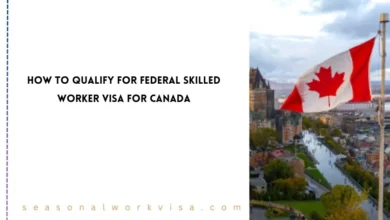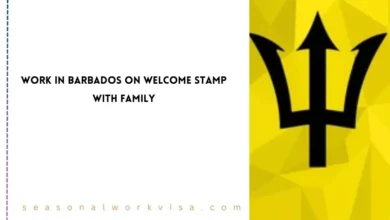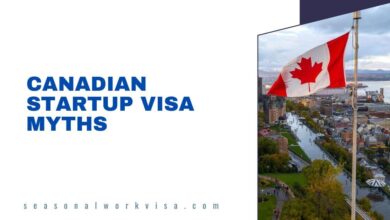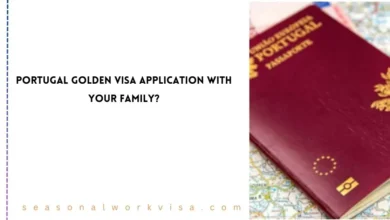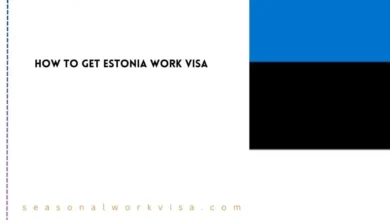UK Visa and Immigration 2025 – Visa Guide
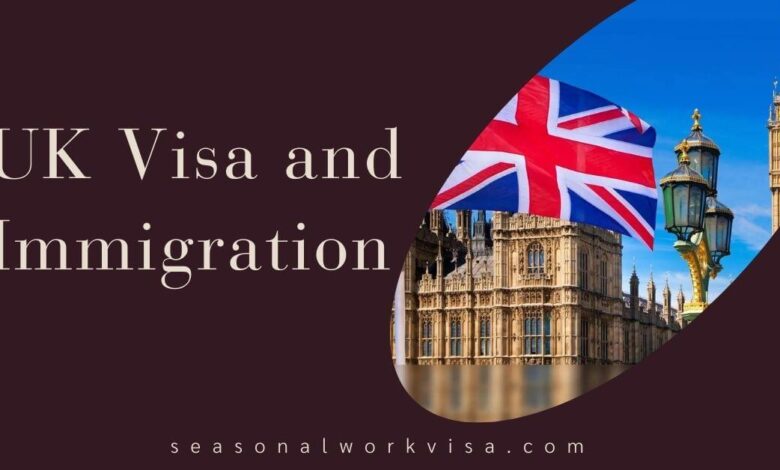
Are you planning a trip to the United Kingdom for professional, recreational, or academic reasons? Challenging as it may be to navigate the United Kingdom’s visa and immigration system in its entirety. We shall present an exhaustive synopsis of the visa and immigration procedure in the United Kingdom. A comprehensive understanding of the visa categories and application prerequisites will constitute the primary emphasis of this guide. By doing so, it shall provide you with the essential knowledge required to plan a seamless journey to the United Kingdom.
UK Visa and Immigration:
A well-established visa and immigration system allows foreign nationals to enter and remain in the United Kingdom in a regulated manner. Knowledge of the various visa categories, application processes, and prerequisites is vital for a seamless experience. This segment will furnish you with an all-encompassing synopsis of the United Kingdom’s visa and immigration system, endowing you with the erudition required to confidently navigate the procedure.
Understanding UK Visa and Immigration System
Diverse authorities are tasked with supervising the visa and immigration system of the United Kingdom to safeguard the integrity and safety of the nation’s borders. Significant roles are played by the Home Office, UK Visas and Immigration (UKVI), and the Border Force in the management and administration of the system. These organizations collaborate to implement immigration policies, manage border control, and process visa applications.
Types of UK Visa
1. Visit Visas
- Standard Visitor Visa: For tourism, short business trips, medical treatments, or visiting family and friends. Valid for up to six months.
- Marriage Visitor Visa: For those coming to the UK to get married or register a civil partnership.
- Permitted Paid Engagement Visa: For short-term paid work in a specific role, such as an expert guest lecturer or performing artist.
2. Work Visas
- Skilled Worker Visa: For individuals with a job offer in a skilled occupation from a licensed UK employer.
- Health and Care Worker Visa: For medical professionals such as doctors, nurses, or social care workers with job offers from the NHS or other eligible organizations.
- Global Talent Visa: For highly skilled individuals in fields like science, arts, and digital technology, endorsed by a UK body.
- Innovator Visa: For entrepreneurs wanting to set up an innovative business in the UK.
- Temporary Work Visa (Seasonal Worker): For short-term, temporary jobs like agricultural or creative sector work.
- Graduate Visa: For international students who want to stay and work in the UK after completing their studies.
3. Family Visas
- Family of a Settled Person Visa: For joining a family member who is a British citizen or has settled status in the UK.
- Partner and Parent Visa: For spouses, civil partners, or unmarried partners of UK residents or for parents of children who are UK citizens.
- Ancestry Visa: For Commonwealth citizens with a UK grandparent, allowing them to live and work in the UK.
4. Study Visas
- Student Visa: For international students enrolled in a UK-based educational institution. This visa replaced the Tier 4 (General) student visa.
- Child Student Visa: For students aged 4-17 attending a UK independent school.
- Short-Term Study Visa: For students undertaking a short course (up to six months).
5. Settlement Visas
- Indefinite Leave to Remain (ILR): For individuals who have lived in the UK for a certain period and want to settle permanently.
- British Citizenship: After obtaining ILR, individuals may be eligible to apply for UK citizenship.
Application Process
- Before applying, ensure you meet the eligibility requirements for the specific visa category. Common visa types include:
- Work visa (e.g., Skilled Worker Visa)
- Student visa
- Visitor visa
- Family visa
- Requirements vary, but may include job offers, sponsorships, English language proficiency, and financial resources.
2. Gather Required Documentation
Key documents typically include:
- Valid Passport (with blank pages for visa issuance)
- Visa Application Form (completed online via the UK government website)
- Proof of Financial Means (bank statements, sponsorships, etc.)
- Biometric Information (photo and fingerprints)
- Proof of English Proficiency (for certain visas, IELTS scores may be required)
- Health Insurance (for longer stays)
- Criminal Record Certificate (for certain visa types like skilled worker visas)
3. Submit Online Application
- Complete the visa application form online via the UK government visa website.
- Ensure that all required information is entered accurately. Mistakes can delay processing or result in rejection.
4. Pay Visa Fees
- Visa fees vary by type and duration of the visa requested. You’ll need to pay these fees online during the application submission.
- Depending on your visa, you may also be required to pay the Immigration Health Surcharge (IHS), which grants access to the UK’s National Health Service (NHS).
5. Biometric Appointment
- Make an appointment for a fingerprint scan at a Visa Application Center and show up. This is where your fingerprints and picture will be taken.
- You’ll also have to bring your passport and any other supporting papers to the appointment for review.
6. Application Processing
- After submitting your application, the UK Visas and Immigration (UKVI) office will process your application. This may involve:
- Document Verification
- Background Checks
- Evaluation under the Points-Based System (for applicable visas)
- Processing times depend on the visa type. Standard processing can take 3 weeks or more. Some visas offer priority services for faster processing.
7. Decision and Passport Collection
- When you get to the UK, you might have to show UK Border Control your visa acceptance letter and other paperwork that backs it up.
- You must get a Biometric Residence Permit (BRP) within 10 days of arriving if you have a certain type of long-term visa.
8. Arriving in the UK
- When you get to the UK, you might have to show UK Border Control your visa acceptance letter and other paperwork that backs it up.
- You must get a Biometric Residence Permit (BRP) within 10 days of arriving if you have a certain type of long-term visa.
Benefits
Even though rules are tightening, there are still advantages for foreign nationals under UK visa & immigration in 2025—especially if you meet the criteria. Here are the positives:
- Clearer Standards & Predictability
With updated salary floors, language requirements, and defined sponsor obligations, the criteria are more transparent. If you meet those, your application is less likely to run into ambiguous rejections. - Stronger Worker Protections
- Employers must pay certain sponsorship costs—not pass them to employees. Reduces risk of hidden costs.
- Having clear legal status helps with rights like working legally, healthcare, housing etc.
- Digitalization & Faster Processes
- Moving to eVisas and online status reduces dependence on physical documents, possibly quicker verification and more convenience.
- The ETA system (for short stays) likely streamlines entry for certain visitors. Less time/effort for some travel related purposes.
- Focus on Skilled Talent
The tightening is also an indication that the UK values more the skilled, qualified workers. If you have good credentials (education, experience, English skills), you’ll be better placed compared to before. Employers seeking “high value” hires may also focus more on you. - Less Competition from Lower-Skilled Routes
Because many low-skill or low-salary roles are harder now to qualify, thin margins might favor people applying via stronger profiles (better roles, better pay). If you are in a higher skill/salary band, the pool of eligible applicants might be more selective—so your chances may improve. - Path to Permanent Residency Remains Possible
Even with the longer waiting times, ILR and eventual citizenship still exist as paths. If you plan long-term, coming in under a “good” route (Skilled Worker, Global Talent, etc.) still means you can build toward settled status. - Encouragement of Integration
Stronger English requirements, clearer rules may mean that people who do migrate are better positioned socially, economically. It helps in employment, settling in, everyday life.
Settlement and Indefinite Leave to Remain (ILR)
In the United Kingdom, settlement, which is alternatively referred to as Indefinite Leave to Remain (ILR), bestows upon individuals the entitlement to establish permanent residence. This section shall delineate the prerequisites for securing settlement, encompassing proficiencies in the English language, a minimum duration of residence, and familiarity with daily life in the United Kingdom. Furthermore, we shall delve into the intricacies of the ILR application procedure and the route to British citizenship via naturalization.
Maintaining Legal Status
After obtaining a visa for the United Kingdom, it is critical to be aware of the duties and responsibilities associated with maintaining your legal status. This includes adhering to the conditions associated with your visa category, reporting any changes in circumstances, and extending or renewing your visa as required. We shall furnish direction on how to meet these prerequisites and propose suggestions to ensure a seamless transition during your sojourn in the United Kingdom.
Appeals and Challenges
Visa applications might be denied or individuals might encounter obstacles about their immigration status under specific circumstances. It is crucial to comprehend one’s rights and the recourse that is accessible to them. This segment shall elucidate the appellate rights, the administrative review procedure, and the avenue for pursuing judicial review. Developing a comprehension of these alternatives will assist you in maneuvering through any unanticipated situations that may transpire throughout your visa process.
For More Info:
Email Your CV, and We’ll Find the Best Pathway For you: info@seasonalworkvisa.com
Conclusion:
Although the process of navigating the UK visa and immigration system may appear daunting, you can do so with confidence if you are equipped with the information contained in this comprehensive guide. This guide has covered the fundamentals of UK visa and immigration, including the application requirements, maintenance of legal status, and the various visa categories. Your trip to the United Kingdom can be fruitful and successful if you adhere to the provided instructions.
Frequently Asked Questions:
How much is the new UK visa fee?
The standard fee is £1,846 to apply for a spouse visa from outside the UK and £1,048 if applying from within the UK. Optional Premium Services: such as expedited processing or assistance at a Visa Application Center.
What are the new immigration rules in the UK?
Starting in Spring, the threshold will be raised to £29,000, which is the 25th percentile of earnings for jobs at the skill level of RQF3, moving to the 40th percentile (currently £34,500) and finally to the 50th percentile (currently £38,700, the level at which the General Skilled Worker threshold is set).
Is the UK canceling PSW?
Graduate route visas, or PSW, will not be affected by the new UK-dependent visa rules. Eligible students will be able to remain in the UK for 2–3 years under this route.
